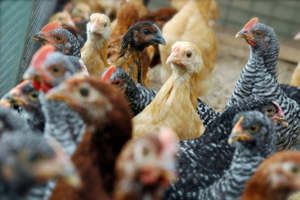Nigeria: Self-reliance through poultry management

State governor, Dr. Rabi’u Musa Kwanwaso, has said that his administration has trained 2,200 people from local government areas across the state in poultry management as a means of empowering them to be self-reliant, according to the Nigerian Tribune.
According to Kwanwaso, the Poultry Training Institute, Tukwi Kano, had so far trained 100 participants from the 22 local government areas of the state, thus bringing to 2,200 the graduands trained.
He said Danbatta and Makoda local government were the first batch, Garko and Gezawa, the second batch, Dawakinn Tofa and Kumbotsho local governments, the fifth, while Makoda, Dala, Nassarawa, Dawakin Kudu and Bichi local government areas were trained under the sixth batch, respectively.
He, however, stated that 600 women were also trained in poultry management so that they could contribute positively to nation building.
“When agriculture is given the required attention it deserves, I assure you the Nigerian economy will propel growth and development in many sectors of the nation’s life,” the governor said.
Speaking at the graduation ceremony and presentation of certificates to the seventh batch of 600 women trained in poultry at the Government House, Kwankwaso urged them to utilise the experience they acquired to better their lives and the state.
Our poultry training approach is a means of poverty reduction and economic empowerment and is biased towards women, because they were seen to be the most vulnerable.
“Also, it would be recalled that since the inception of this administration, government is convinced on the need to prioritise agricultural development in order to minimise the menace of poverty among the state teeming population, increase in revenue generation and ensuring food security in the state,” the governor stated.
Kwankwaso added that in Kano State, agriculture still remained the mainstay of the economy, with over 70 per cent of the population engaged along the agricultural value chains.
“It is along the line that the government resolved to increase more funds to this sector in the 2013 budget estimate compared with the previous years. Women are important in nation building, because if you trained women, automatically you have trained a nation,” he stated
He said the country was facing myriad of socio-economic problems, because the nation’s leadership had failed to tap from the roles agriculture played in the past, especially in the provision of job opportunity and foodstuff for the country.
Kwankwaso added that the 600 women trained in general poultry management by his administration was aimed at making themself-reliant, as well as affording them to contribute their necessary quotas to the economic development of the state.








